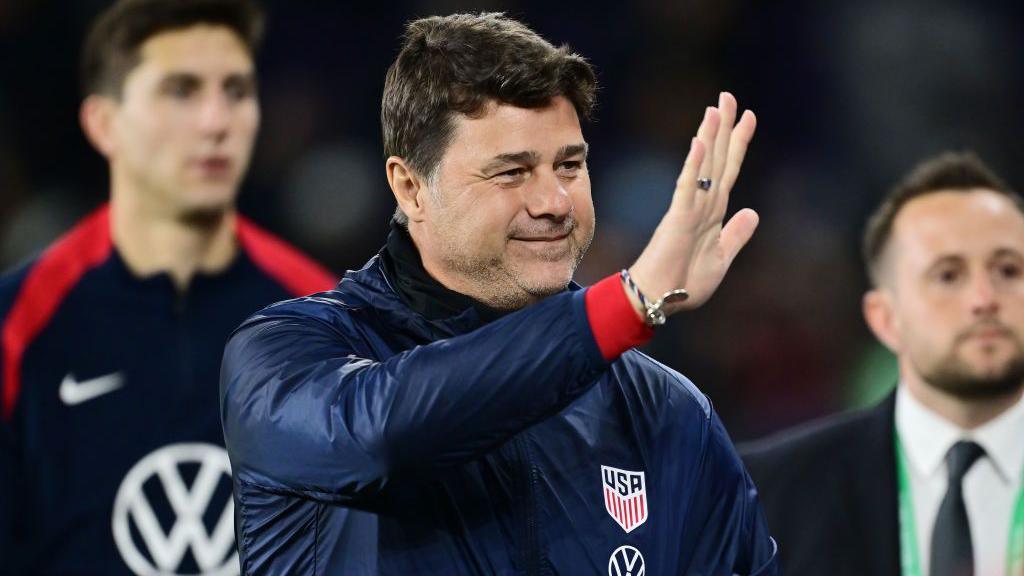News And PoliticsCommunications And EntertainmentSports And FitnessHealth And LifestyleOthersGeneralWorldnewsBusiness And MoneyNigerianewsRelationship And MarriageStories And PoemsArts And EducationScience And TechnologyCelebrityEntertainmentMotivationalsReligion And PrinciplesNewsFood And KitchenHealthPersonal Care And BeautySportsBusinessFamily And HolidaysStoriesIT And Computer ScienceRelationshipsLawLifestyleComedyReligionLifetipsEducationMotivationAgriculturePoliticsAnnouncementUSMLE And MedicalsMoneyEngineeringPoemsSocial SciencesHistoryFoodGive AidBeautyMarriageQuestions And AnswersHobbies And HandiworksVehicles And MobilityTechnologyFamilyPrinciplesNatureQuotesFashionAdvertisementChildrenKitchenGive HelpArtsWomenSpiritualityQuestions AnsweredAnimalsHerbal MedicineSciencePersonal CareFitnessTravelSecurityOpinionMedicineHome RemedyMenReviewsHobbiesGiveawayHolidaysUsmleVehiclesHandiworksHalloweenQ&A
Top Recent
Loading...
You are not following any account(s)
profile/5683FB_IMG_16533107021641748.jpg
News_Naija

NNPP Lawmaker Sumaila Confirms Defection To APC
~0.9 mins read
The lawmaker representing Kano South Senatorial District, Kawu Sumaila, on Wednesday confirmed that he has defected from the New Nigeria People’s Party to the ruling All Progressives Congress. His clarification, which was contained in a statement shared via his Facebook page, ended weeks of intense political speculation over his future in the NNPP. The senator hinged his decision to quit on the need to be fully committed to his constituents, which he claims remains his first priority. The statement read, “Yes, it is true — the rumours regarding my defection are accurate. All politics is local, and my primary concern has always been, and remains, the welfare of my immediate constituency. “I am resolutely determined to advance the lives of my people, ensuring their needs are met and their future is secured.” His exit has also fuelled rumour that the leader of the Kwankwasiyyan Movement and former presidential candidate of the NNPP, Senator Rabiu Kwankwaso, may return to the APC. The confirmation of his change of allegiance comes on the heels of Wednesday’s shocking defection of Delta Governor, Sheriff Oborevwori, former Vice Presidential Candidate of the Peoples Democratic Party, Ifeanyi Okowa, and the party structure in the state to the ruling APC.
Read more stories like this on punchng.com
dataDp/3575.jpeg
Futbol

Aubameyang Dents Kenya's Dreams Of World Cup Spot
~2.2 mins read
Pierre-Emerick Aubameyang scored twice as Gabon beat Kenya 2-1 in qualifying for the 2026 Fifa World Cup - and severely dented the East Africans' hopes of reaching the finals. Victory sent Gabon two points clear of Ivory Coast at the top of Group F as the Panthers strengthened their own bid for a maiden appearance at the tournament. Kenya are fourth, nine points behind the Group F leaders. Former Arsenal striker Aubameyang opened the scoring when he lashed home with a right-footed shot in the 16th minute, and the 35-year-old celebrated with some trademark acrobatics. Harambee Stars captain Michael Olunga had the best chances to equalise in Nairobi, having a shot tipped on to the post and then heading wide in first-half injury time. Aubameyang, who now plays his club football in Saudi Arabia with Al-Qadsiah, doubled Gabon's lead from the penalty spot seven minutes after the break after Erick Ouma was penalised for handball. Olunga did pull one back in the 62nd minute, converting Ouma's low cross from the left, but Kenya could not find an equaliser and their chances of a first trip to the World Cup are fading with just four rounds of fixtures remaining. Only the group winners are assured of a place at next year's tournament, while the four best second-placed sides across the nine groups will enter play-offs for a place at an intercontinental qualifier. Benni McCarthy had claimed a draw against The Gambia on Thursday in his first match as Harambee Stars boss, but defeat leaves Kenya seven points behind second-placed Ivory Coast, having played a game more than the Elephants. The sixth round of the group campaign continues with eight fixtures on Monday, and Ivory Coast will return to the top of Group F if they beat the Gambians at home. Elsewhere, Mauritius fought back from 2-0 down and then scored an injury-time equaliser to claim a 3-3 draw away against Eswatini in Group D. Eswatini had surprisingly claimed their first point on Wednesday with a solid defensive display against five-time continental champions Cameroon, and were rewarded for their early ambition against Mauritius. Philani Mkhonto twice capitalised on hesitant defending to put the hosts 2-0 up inside 18 minutes in Mbombela. But set-pieces proved to be Eswatini's undoing in the second half as the visitors drew level within five minutes of the restart through goals from Lindsay Rose and Yannick Aristide. Mayibongwe Mabuza put Eswatini 3-2 up but Emmanuel Vincent rescued a point for the Indian Ocean islanders with his 91st minute free-kick. Eswatini remain bottom of Group D on two points, while Mauritius are just above them in fifth spot on five points. Cape Verde lead the group on 10 points, Cameroon are second on nine and Libya and Angola remain in contention on eight and seven points respectively.
All thanks to BBC Sport
dataDp/3575.jpeg
Futbol

Pochettino Would Like To Manage Tottenham Again
~1.8 mins read
Former Tottenham Hotspur manager Mauricio Pochettino says he would like to return to the north London club one day. The 53-year-old managed Spurs between 2014 and 2019, leading the club to a second-place finish in the 2016-17 Premier League season, the 2015 EFL Cup final and the 2019 Champions League final. He was sacked in November 2019 and then managed Paris St-Germain and Chelsea before being appointed United States coach in September. "When I left the club I always remember one interview I said I would like one day to come back to Tottenham," the Argentine told Sky Sports., external "I am in the USA, so I am not going to talk about that now - but what I said then I still, after six years or five years, feel in my heart. Yes, I would like one day to come back." Pochettino says he retains a "very good relationship" with Daniel Levy despite being sacked by the Spurs chairman. "It's true after nearly six years with all that we lived together, it was tough because of all the ups and downs and emotional things that we lived," he added. "We split very well. One thing was professional, another personal and now, like the day after we left Tottenham, we always have a very, very good relationship." Pochettino spent one season at Chelsea - helping them reach the EFL Cup final, the FA Cup semi-final and sixth place in the Premier League - before leaving by mutual consent last May. "Always when something doesn't work it's better to stop and to look at different things and I think it was the best decision for both sides," he said. "I think both sides were happy to split and then to be open to see different options, and different options appear." After leaving Stamford Bridge, Pochettino was linked with the England job before Thomas Tuchel's appointment last autumn. The former defender says the timing was not right for England but the chance to coach 2026 World Cup co-hosts the United States was too good to turn down. "It's a privilege to be head coach of the England national team but the timings sometimes are not the same - in the moment you can be available, the option disappears," he said. "Being the national coach of the USA with the World Cup in 2026, for a coaching staff like us after many years working in clubs, it was a great opportunity to challenge ourselves. "When the offer arrived, it was easy to say 'yes'."
All thanks to BBC Sport
profile/5170OIG3.jpeg.webp
Healthwatch

Celiac Disease: Exploring Four Myths
~4.2 mins read
An expert shines light on common misconceptions about this genetic autoimmune disease triggered by gluten.

Celiac disease is diagnosed with blood tests that look for specific antibodies. If antibodies are present, a definitive diagnosis requires an intestinal biopsy to look for signs of damage that characterize the condition.
Non-celiac gluten sensitivity does not trigger antibodies or cause intestinal damage. Yet some people with this problem say they also experience brain fog, trouble concentrating, muscle aches and pain, and fatigue after eating gluten-containing foods.
One possibility is sugarlike molecules known as FODMAPs, which are found in many foods — including wheat. Short for fermentable oligosaccharides, disaccharides, monosaccharides, and polyols, gas and bloating can occur when gut bacteria feed on FODMAPs.
Another possibility is an allergy to wheat, which can cause symptoms such as swelling, itching, or irritation of the mouth and throat after eating wheat. Other symptoms include a skin rash, stuffy nose, and headache, as well as cramps, nausea, and vomiting. Some people may develop a life-threating allergic reaction known as anaphylaxis.
Enzymes that break down gluten, which people could take alongside gluten-containing foods. "It's a similar concept to the lactase pills taken by people who are lactose intolerant to help them digest dairy products," says Dr. Kelly.
Dampening the immune response to gluten by inhibiting an enzyme called tissue transglutaminase that makes gluten more potent as an antigen.
Reprogramming the immune response to prevent the body from reacting to gluten.

Celiac disease is a digestive and immune disorder that can keep the body from absorbing necessary nutrients. "Our conception and awareness of celiac disease has evolved over the past few decades, but there are still aspects that remain poorly understood," says Dr. Ciaran Kelly, medical director of the Celiac Center at Beth Israel Deaconess Medical Center and professor of medicine at Harvard Medical School.
Perhaps not surprisingly, misconceptions are widespread among the general public. One example? Many people assume that everyone who has celiac disease is plagued by abdominal pain, bloating, or diarrhea. But actually, many adults newly diagnosed with this inherited gluten intolerance don't have these symptoms.
What's more, gluten — the sticky protein found in grains such as wheat, barley, and rye — can cause gastrointestinal distress and other symptoms in people who don't have celiac disease. Read on for a deeper dive into four myths and facts about celiac disease and related digestive conditions.
Myth # 1: Celiac disease is usually diagnosed at a young age
Not typically. While celiac disease can develop any time after a baby's first exposure to gluten, it's usually diagnosed much later in life. According to the National Celiac Association, the average age of diagnosis is between 46 and 56. Around 25% of people are diagnosed after age 60.
Celiac disease is slightly more common in women and among people with other autoimmune conditions, including type 1 diabetes, Hashimoto's thyroiditis (a common cause of low thyroid levels), and dermatitis herpetiformis (a rare condition marked by an itchy, blistering rash).
"We don't know why some people go from being susceptible to actually having celiac disease," says Dr. Kelly. The prevailing theory is that some sort of physical or emotional stress — such as a viral infection, surgery, or anxiety from a stressful life event — may "flip the switch" and cause the disease to appear, he says. "Increasing numbers of people are being diagnosed at midlife and older, often after they're found to have conditions such as anemia or osteoporosis caused by nutrient deficiencies," says Dr. Kelly.
Myth #2: Celiac disease only affects the gut
When people have celiac disease, eating gluten triggers an immune system attack that can ravage the lining of the small intestine. A healthy small intestine is lined with fingerlike projections, called villi, that absorb nutrients. In celiac disease, the immune system attacks the villi, causing them to flatten and become inflamed — and thus unable to adequately absorb nutrients.
While gastrointestinal problems can occur, they aren't always present. In fact, celiac disease can present with many different symptoms that affect the nervous, endocrine, and skeletal systems. A few examples are brain fog, changes in menstrual periods, or muscle and joint pain.
Myth # 3: Celiac disease versus gluten intolerance
If you feel sick after eating gluten, you probably have celiac disease, right? Actually, that may not be true. Some people have non-celiac gluten sensitivity (also called gluten intolerance), which can cause uncomfortable digestive symptoms after eating gluten. But gluten intolerance differs from celiac disease.
"Non-celiac gluten sensitivity appears to be a real phenomenon, but it's not well defined," says Dr. Kelly. It's unclear whether people experiencing it are intolerant to gluten or to something else in gluten-containing foods.
Myth #4: A gluten-free diet always relieves the symptoms and signs of celiac disease
The sole treatment for celiac disease — adopting a diet that avoids all gluten-containing foods — doesn't always help. This problem is known as nonresponsive celiac disease.
"About 20% of people with celiac disease have ongoing symptoms, despite their best efforts to stick to a gluten-free diet," says Dr. Kelly. Others have intermittent signs and symptoms, particularly when they are accidentally exposed to gluten. Accidental exposures often happen when people eat prepared or restaurant foods that claim to be gluten-free but are not. Cross contamination with gluten-containing foods is another potential route.
Potential solutions to nonresponsive celiac disease are being studied. Three promising approaches are:
Loading...
 News_Naija
News_Naija
 Futbol
Futbol
 Healthwatch
Healthwatch